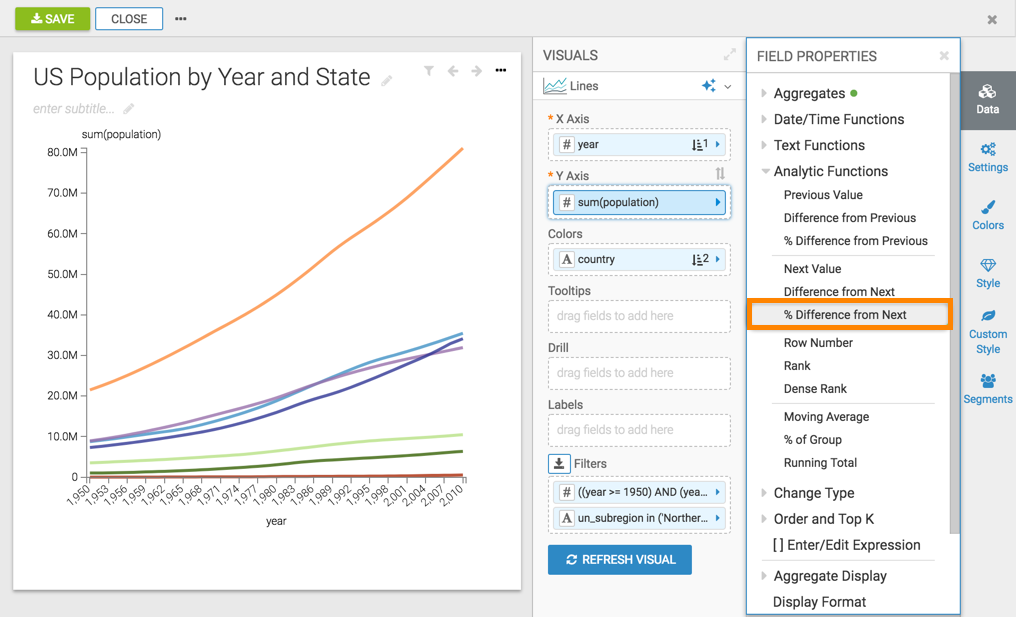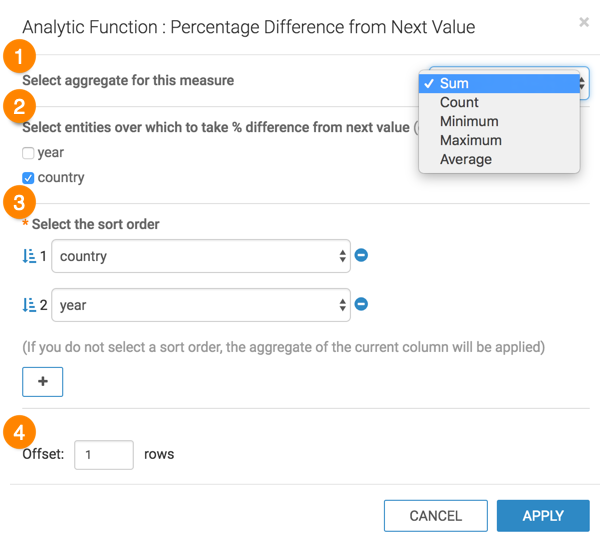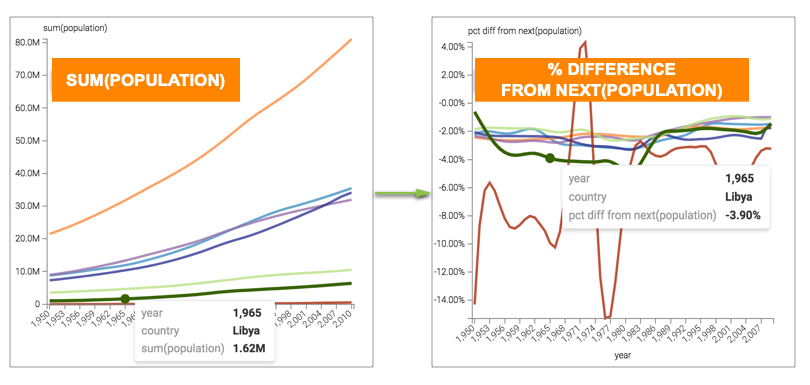Percentage difference from next value analytic function
This article describes how to use the Percent Difference from Next Value analytic function in CDP Data Visualization.
-
Click the field on the measurement shelf.In this example, the
sum(population)field on the Y Axis shelf. -
In the FIELD PROPERTIES menu, expand Analytic
Functions, and select % Difference from Next.

-
In the Analytic Function: Percentage Difference from Next Value
modal window:
-
In Select aggregate for this measure, leave the default Sum. The other aggregation options are Count, Minimum, Maximum, and Average. In addition, some connection types also support Approximate Distinct Count and Exact Distinct Count.
-
Under Select entities over which to take % difference from next value, select country. This is the grouping that applies when calculating the % difference from next values.
-
Under Select the sort order, you can specify the order of sorting. This order specifies what the next row is, and the row where the value is taken. If your visual already specifies sorting order, these values appear in the modal.
In this example, edit the sort order to be: country ascending, followed by year ascending.
- Under Offset, specify the number of next rows over which the function executes.

-
- Click APPLY.
- Optional:
If you examine the expression in the Enter/Edit Expression
interface, it shows that the function has the following form:
(sum([population]) - LAG(sum([population]), 1) over (partition by [country] order by [country], [year])) / LAG(sum([population]), 1) over (partition by [country] order by [country], [year]) as 'pct diff from next(population)' -
Click REFRESH VISUAL.
You can see the change in the Y axis and tooltips, from displaying the
sum(population)in millions topopulationas a percentage difference from next value.Hover over any country to view the percentage difference of population from the next year. In the following example, the tooltip shows a decrease in the population of Libya from 1965 to next year 1966 by 3.90%.



